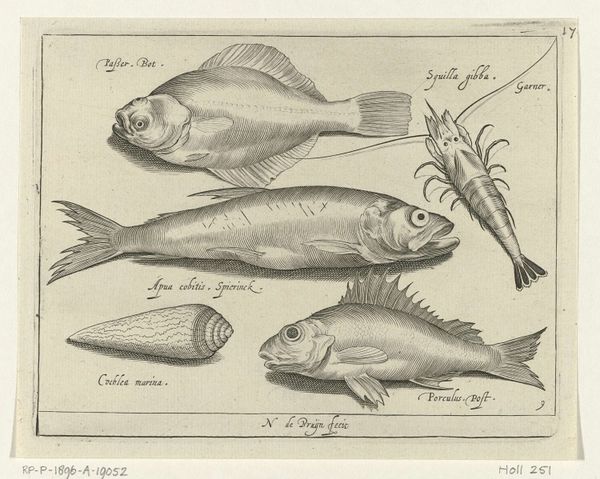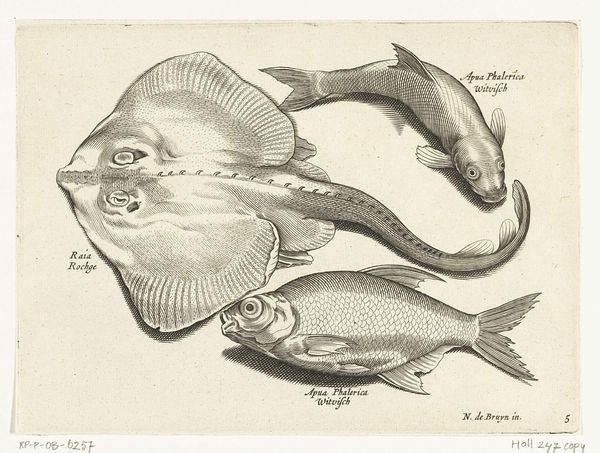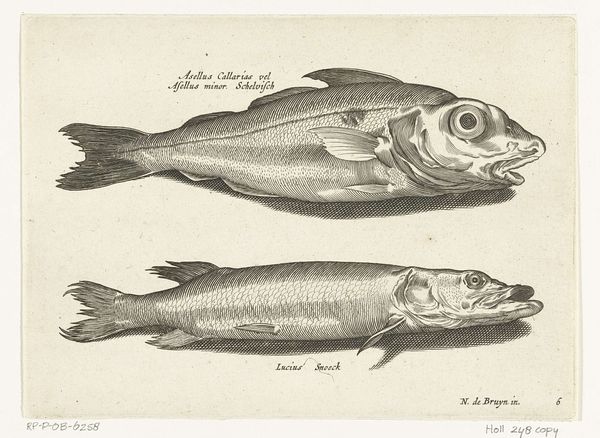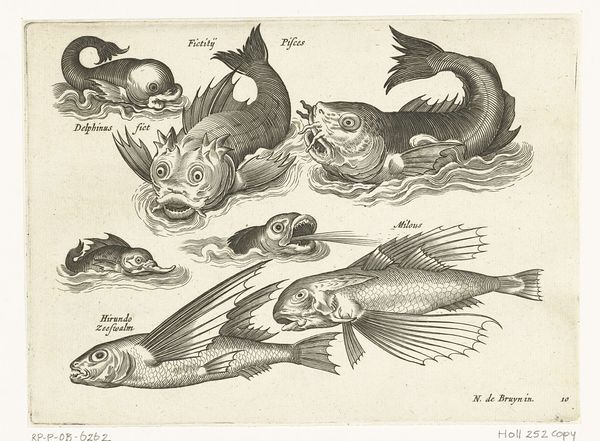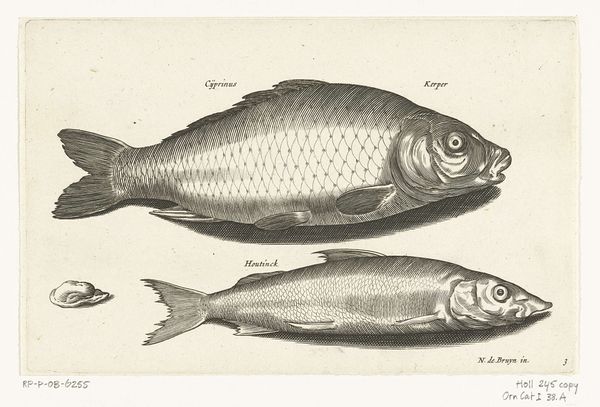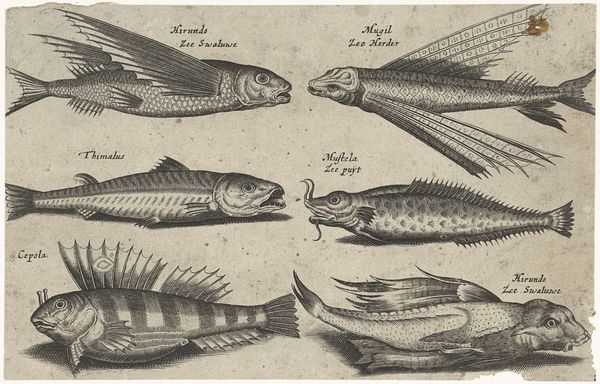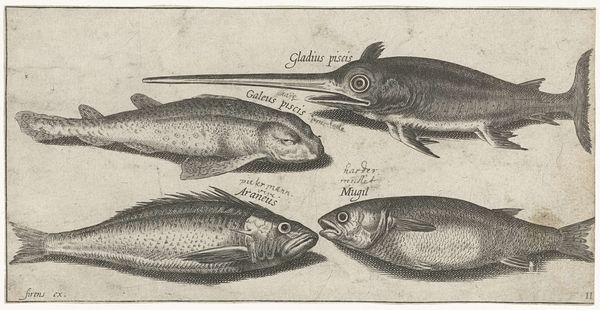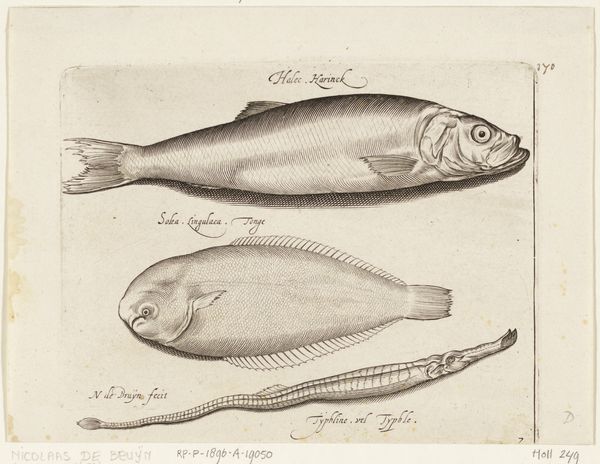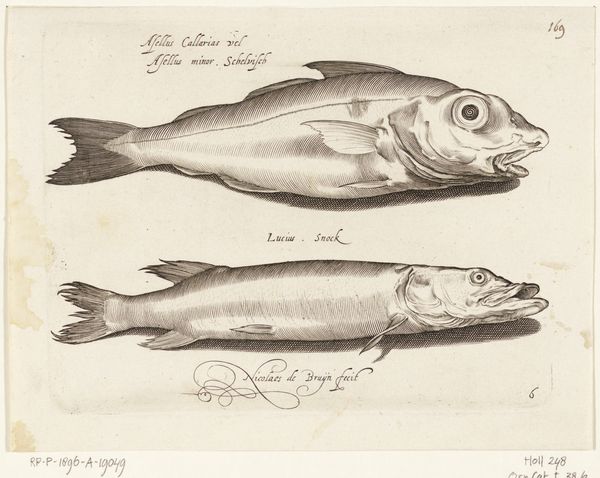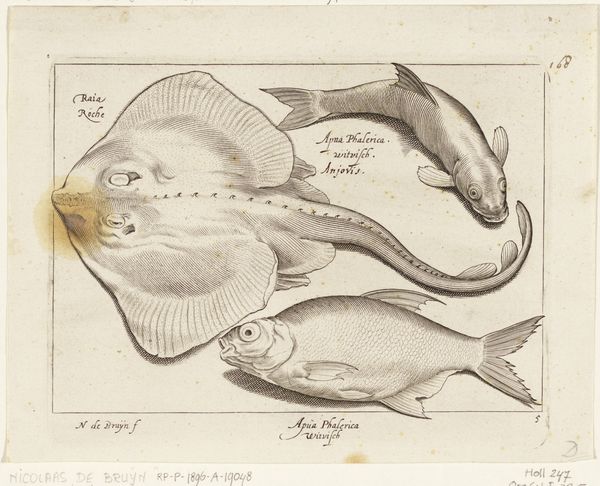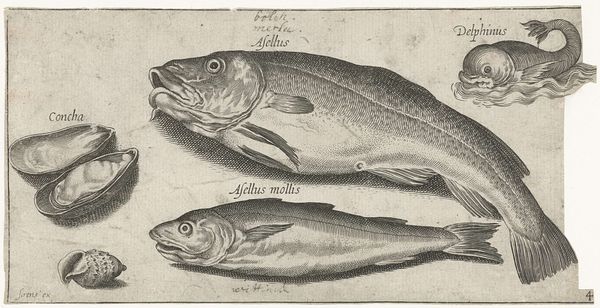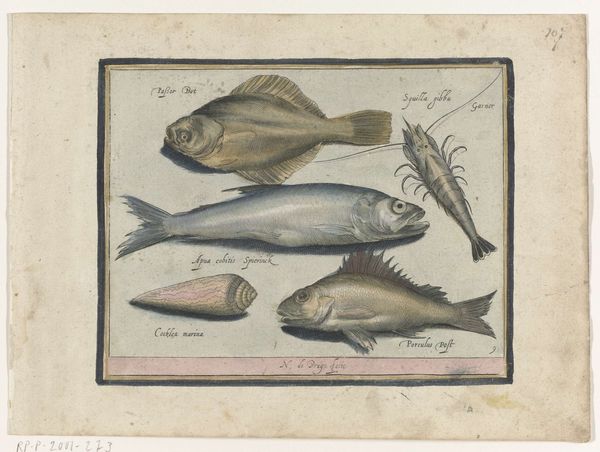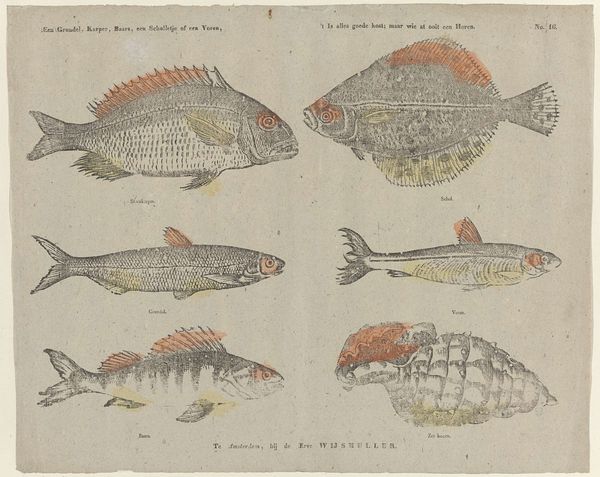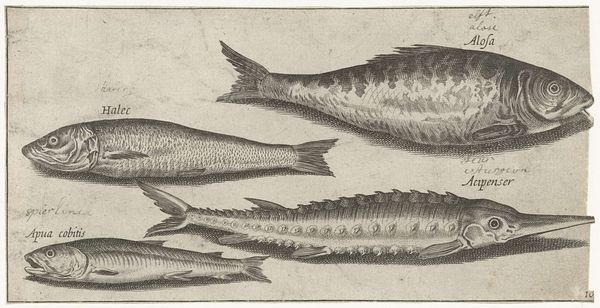
print, intaglio, engraving
#
dutch-golden-age
# print
#
intaglio
#
old engraving style
#
pen-ink sketch
#
history-painting
#
engraving
Dimensions: height 136 mm, width 185 mm
Copyright: Rijks Museum: Open Domain
Editor: This print, dating sometime between 1581 and 1652, is titled "Bot, garnaal, spiering en pos" and is currently held at the Rijksmuseum. It's an engraving of various sea creatures. What strikes me is the clinical precision – it’s almost like a scientific illustration. What compositional elements do you find most compelling? Curator: Note the emphasis on line and form, key intrinsic elements. The artist meticulously renders the texture and shape of each creature through variations in line weight and density, without any dramatic backgrounds. Observe the considered arrangement, how the forms relate to each other spatially on the page creating an overall balance despite the differing sizes and species represented. It invites the viewer to appreciate the intrinsic visual structure. Editor: So, the visual relationships and structure are the primary focus, rather than, say, any symbolic meaning? Curator: Precisely. While context might suggest a historical or cultural purpose, here we must emphasize the rigorous observation and rendering. Ask yourself: how does the play of light and shadow, achieved solely through line, define the volume of each specimen? It’s this graphic representation, the pure structure that commands attention. How do you respond to the varying patterns created through hatching? Editor: I see how the varying lines create the illusion of depth. It's all about the form. I think I better understand now that the essence of this work isn't necessarily in 'what' is represented, but more in 'how' it is represented through the lines and forms. Curator: An excellent summation. Close visual analysis reveals the artwork’s underlying structure, its formal properties, that ultimately constitutes its core significance.
Comments
No comments
Be the first to comment and join the conversation on the ultimate creative platform.
